Dear WesleyNexus Colleague:
We begin our January, 2018 newsletter with a reflection by Rick Barr, WesleyNexus Secretary, a founding member of WesleyNexus who has been leading science and religion discussions in the Washington, DC area for nearly two decades. He started his journey in 1998 when he attended Science and the Spiritual Quest, a conference held in Berkeley, CA. From this beginning, Rick started an official Institute for Religion in the Age of Science (IRAS) Local Discussion Group which lasted 13 years, leading to the founding of WesleyNexus. He also participated in discussion groups hosted by The Washington Theological Consortium, Metropolitan United Methodist Church, the DOSER Project of AAAS, and The Ecumenical Roundtable on Science, Technology and the Church. He has also completed a MA in Systematic Theology with a concentration in Science and Religion. In his reflection, Rick contemplates the most significant insights he has gained by following this path.
What I Have Learned So Far by Rick Barr
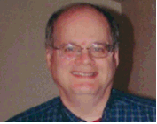
Last summer, my good friend and audit colleague Paul Jackson sent me an email inviting me to participate in a project called “What you have learned so far where he requested that participants respond to the Templeton Foundation’s “Big Questions”: 1) Why are we here? 2) How Can We Flourish? 3) What is the Fundamental Structure of Reality? Since I have known Paul for 20 years, having worked with him as an auditor and having him participate in the IRAS discussion group, I was asked the simple question, what have I learned over the past 20 years? Simple? Not! So, I have procrastinated for a half year not knowing quite what to say. But it is a new year and time to start fresh and deliver on my well-intentioned but unfulfilled promise. So, what have I learned? As Paul pointed out in his initial invitation, getting the right question is half the problem. I think he is right on this but the question given was not quite right, at least for me. While I have learned a great deal over the past 20 years, I have forgotten much and also found that some of what I have learned was inaccurate, imprecise and, in some cases, likely false. In addition, many ideas are just plain beyond me (mathematical physics) and only accessible through third-party popular presentations. This is true in both science and, to a lesser degree, theology. For me, the question should not be what I have learned, or what I know or who I find most compelling but what fundamental concepts are deep enough, broad enough and promising enough to provide a grounding on how I understand the world. To focus more precisely, what ideas would I want to convey that would capture how I understand the world if I had only a 30 second elevator ride to do so? I have chosen four concepts that fit this bill. The four concepts I choose are novelty, emergence, personally engaged dialectic and beloved community. In my understanding, these concepts are all related to each other and provide clarification to each other. In 30 seconds, one can get only an inkling of what is meant, perhaps just a tease, but hopefully that is enough. So here is my elevator speech.
Too often we think of the world as governed by the laws of nature and certainly there are numerous patterns in nature that repeat and are subject to scientific inquiry. That is what science is all about and I affirm its findings. However, there are other aspects of our world which both transcends and works with these scientifically discerned patterns. Novelty, though hard to grasp conceptually and therefore too often dismissed, provides a complementary dimension to the discoveries of science. In novelty one encounters uniqueness, particularity and surprise. When contemplating novelty, one perceives the newness of processes and also their values. In my understanding, it is through embedded, on-going, incremental novelty that the qualitative complexities of our world arise. Over time, this novelty eventually leads to emergence of new, unanticipated patterns. In the science and religion dialogue, this emergence of qualitative complexity provides the layers of depth which are so important to this interdisciplinary enterprise. To begin to understand this depth, however, one cannot be wedded to a single methodology or discipline but instead must engage dialectically across the numerous conceptual and experiential landscapes with other participants. This is what I mean by engaged dialectic. This engagement needs to be open, personal and humble with participants willing to adjust their own ideas and beliefs based on the insights of others. It also requires a commitment to the ongoing discovery of truth and the correction of error in a never-ending process of interpretation. As the philosopher Josiah Royce stated, “The world is a progressively realized community of interpretation” or, in short, what he called “the Beloved Community.” It is in this community that truth and meaning can be found.
So that is my elevator speech, not an argument and not a proof but a short entré into what I have been able to perceive as both important and real coming from two decades of immersion in science and religion. It also provides a means of interpreting the Christian message, the ongoing tasks of Christian living and the engagement with persons from other faiths or no faiths at all. I doubt any readers agree with me fully but that is where I would want to begin. That is where the conversation starts.
We appreciate the contributions we have received throughout 2017. We will be using these funds to present our Evolution Weekend program on February 11 as a live video feed so that those unable to attend in person will be able to share in our discussion on the societal challenge of opioid addiction. We will continue to develop programs throughout 2018. We will need your support and hope you will consider helping us out. WesleyNexus is a 501(c)(3) charitable, educational organization, and we will acknowledge all gifts from individuals for tax reporting purposes.
Thanks in advance for your support.
God Bless,
Rick, Maynard, and the rest of the
WesleyNexus Board of Directors
*********************************
BISHOP’S CONVOCATION
FAITH, SCIENCE AND MINISTRY: WHERE FAITH AND REASON MEET
On January 20, WesleyNexus will coordinate a special program on “Faith, Science and Ministry: Where Faith and Science Meet.” It is a Convocation being presented by Bishop Sharma Lewis of the Virginia United Methodist Conference and the Fox Endowment, a collaborative “first of its kind event.”
Live-streamed from the Virginia Conference Center in Richmond, pastors and laypersons in the Baltimore-Washington Conference have the op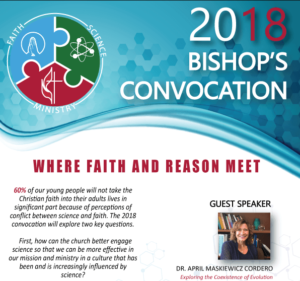 portunity for real time participation by registering for the event being presented at Oakdale United Methodist Church in Olney, Maryland, hosted by Pastor Kevin Baker. The ministry issue is the major concern that we all share across the denomination – and common to all mainline Protestant congregations – we are losing too many young people and young adults, especially when they go off to college and encounter the many disciplines of modern science – physics, biology, astronomy, and all of the courses of study leading to careers in medicine. Bishop Lewis will open the convocation by addressing this concern, and introduce the featured speaker, Dr. April Maskiewics Cordero, for the plenary address entitled “The Coexistence of Evolution and Christianity.” Dr. Maskiewicz is a professor of biology at Point Loma Nazarene University. Her research focuses on developing more effective approaches for teaching ecology and evolution that enable students to develop not only factual knowledge, but biological ways of thinking and reasoning about the living world. As a Christian biologist trained in science education research, she is in a unique position to investigate science students’ perceptions of the relationship between scientific issues that evoke controversy (i.e. origins of life, evolution, human origins) and Christian faith.
portunity for real time participation by registering for the event being presented at Oakdale United Methodist Church in Olney, Maryland, hosted by Pastor Kevin Baker. The ministry issue is the major concern that we all share across the denomination – and common to all mainline Protestant congregations – we are losing too many young people and young adults, especially when they go off to college and encounter the many disciplines of modern science – physics, biology, astronomy, and all of the courses of study leading to careers in medicine. Bishop Lewis will open the convocation by addressing this concern, and introduce the featured speaker, Dr. April Maskiewics Cordero, for the plenary address entitled “The Coexistence of Evolution and Christianity.” Dr. Maskiewicz is a professor of biology at Point Loma Nazarene University. Her research focuses on developing more effective approaches for teaching ecology and evolution that enable students to develop not only factual knowledge, but biological ways of thinking and reasoning about the living world. As a Christian biologist trained in science education research, she is in a unique position to investigate science students’ perceptions of the relationship between scientific issues that evoke controversy (i.e. origins of life, evolution, human origins) and Christian faith.
During the morning and afternoon periods there will be a series of four workshops, including sessions on interpreting Scripture, common stumbling blocks in understanding science, strategies for referencing science in sermons and worship, creation care of the earth, end-of-life medical ethics. The first workshop will be led by Jennifer Secki Shields, WesleyNexus Board member and Founder & Director, Discovery & Faith. Her topic is “Stumbling Blocks & Building Blocks: Learning How to Follow Jesus in a Science-Shaped Culture,” with a focus on teaching younger children in our Church schools. After a lunch break, Workshop II is led by Rev. Bill Maisch, former WesleyNexus board member and Pastor, Poolesville Memorial UMC in our Baltimore-Washington Annual Conference. Bill leads us in thinking about how we “bring science to bear in sermons, worship and ministry.” The third workshop is led by Michael Wriston, PhD, on “Creation care and end-of-life medical ethics.” Workshop participants at Oakdale Church and five other locations will be able to interact with the Convocation leaders in real time. The day will end with ideas for praxis – putting it all together for our local congregations, and there may be some ways for those of us in the Balt-Wash conference to facilitate some follow-up here. Bishop LaTrelle Easterling urges all pastors and interested laypersons to take advantage of this opportunity. Any member of our Conference can participate, but advance registration is necessary in order to accommodate everyone for lunch and discussions at the tables. We suggest that you access the website immediately to download a printable bulletin for your congregation and be prepared for a full day of thought, discussion and building some strategies that will work for you, as we build successful ministries in the 21st century. To register go to:
https://vaumfoundation.org/bishops-convocation/
The locations are:
Courthouse Community UMC – Virginia Beach, VA
Christ’s Church UMC – Fairfax Station, VA
Oakdale UMC – Olney, MD
St. Mark’s UMC – Daleville, VA
Woodlake UMC – Richmond, VA
Williamsburg UMC – Williamsburg, VA
The flyer can be found here:
https://vaumfoundation.org/wp-content/uploads/2017/10/2018-BC-Flyer.png
*********************************
Evolution Weekend in Maryland – February 11, 2018
Once again, for the fifth year, WesleyNexus will sponsor and host the principal Evolution Weekend program for Maryland on February 11, in a live-streamed event from the Baltimore-Washington Conference Mission Center in Fulton, Maryland. The program for 2018 is “Faith and Science Confront Pain: The Churches address the Opioid Crisis.”
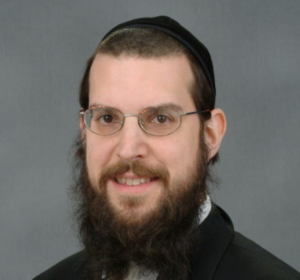
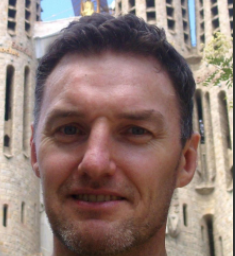
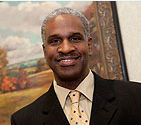
Final details of the program are forthcoming, but the resource panelists will bring up-to-the-minute perspectives on the issues. Initiating the discussion will be Michael Oshinsky, PhD, Program Director Pain and Migraine at the NIH National Institute of Neurological Disorders and Stroke, in Bethesda, Maryland. Joining him on the panel will be Dr. Gerard Ahern, professor of pharmacology at Georgetown University, Washington DC. Next we will hear from Dr. Onaje Salim, program officer with the Substance Abuse and Mental Health Services Administration (Center for Substance Abuse Treatment) in Rockville, Maryland.
The final panelist and respondent will be Rev. Leo Yates, Jr., LCPC, who serves at the Division of Rehabilitation Services (DORS) in Baltimore, MD. As a licensed clinician, he is a staff specialist working with a clinical team for people with co-occurring disorders (mental health and addiction). Moderator for the program will be Dr. M. Catherine Bennett, Scientific Review Officer at NIH Somatosensory and Chemosensory Systems. All persons, lay and clergy, in the national capital area are encouraged to attend the event in person, where door prizes will be awarded to include books, videos and other resources appropriate to the topic. Others around the country are encouraged to organize
discussion groups in their own congregations, or just participate from their office or home via the link to the event. Updated information will be appearing on the WesleyNexus website as we get closer to the event. We are greatly appreciative to our principal sponsors, including the Clergy Letter Project, the Institute for Religion in an Age of Science, the Institute for Science and Judaism, and the Baltimore-Washington Conference of the United Methodist Church. And, of course, our friends and donors who continue to sustain this and all of our outreach programs.
*********************************
Reminder: IRAS 2018 CALL FOR PAPERS
“Artificial Intelligence Turns Deep: Who’s in Control?”
64TH ANNUAL IRAS SUMMER CONFERENCE ON STAR ISLAND
(JUNE 23-30, 2018)
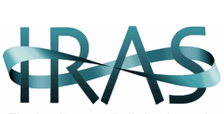
Deep learning neural networks, big data, fast computers, and vast investments of at least fifty billion dollars by 2020 are rapidly changing the prospects of AI without adequately addressing the conundrum first raised by Hal’s famous line in 1968’s 2001: A Space Odyssey: “Sorry Dave, I can’t do that.” Addressing the question of control 50 years after both the film (on which Marvin Minsky advised) and an IRAS Conference (at which Minsky spoke), a wide range of experts will consider: (i) the benefits of AI for the future of ALL of society; (ii) how to avoid pitfalls concerning control of AI; (iii) the ethical, social, legal, and religious factors to be considered; and (iv) possible processes to maintain human control of the future of AI.
We invite proposals from professionals in scientific or religious fields with expertise or interest in AI for oral or poster presentations relevant to the conference theme. Proposals will be peer-reviewed and the top proposals will be invited as Shapley-Booth fellows to receive full room and board for the week at Star Island.
More information about this year’s conference can be found at http://iras.org
The Deadline for proposals is February 1, 2018. Fellowship decisions and accepted papers for either oral or poster presentations will be announced by March 15, 2018. Proposals should include 1) A cover letter including your contact information 2) An abstract of no more than 150 words and 3) A narrative of no more than 500 words (roughly two, double-spaced pages). Submit proposals as Microsoft Word attachments (.doc or .docx) to Emily Austin at austin.emily@gmail.com. Include “(your Last Name) IRAS Proposal” as the subject line.
IRAS cultivates a community of informed and respectful inquiry and dialogue at the intersections of science with religion, spirituality and philosophy in service of global, societal and personal well-being. Star Island provides an environment that frees all who come to renew spiritually, explore matters of consequence, and gain knowledge about the world as it might ideally be. Participants in the WesleyNexus network will qualify for a 30% discount on registration, room and board at Star Island, do this makes the conference an attractive option for you who receive this newsletter. We urge everyone to take seriously this dialogue opportunity.
*********************************
NASA’s Juno Spacecraft Sent Back Some Spectacular Shots Of Jupiter
by Nick Visser
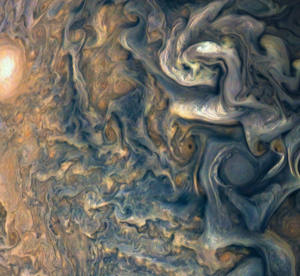 Beauty, awe and wonder come together in these newly published pictures of the planet Jupiter taken by the NASA Juno spacecraft. Citizen scientists Gerald Eichstädt and Seán Doran have taken these pictures and edited for this article. You can find the full pictures here:
Beauty, awe and wonder come together in these newly published pictures of the planet Jupiter taken by the NASA Juno spacecraft. Citizen scientists Gerald Eichstädt and Seán Doran have taken these pictures and edited for this article. You can find the full pictures here:
https://www.huffingtonpost.com/entry/nasa-juno-jupiter-photos_us_5a52fb98e4b0efe47eb9f7d1
Many more pictures can be found on the NASA website here: https://www.missionjuno.swri.edu/junocam/processing?users%5B%5D=4657&p=2
*********************************
CAN PHILOSOPHY CLARIFY SCIENCE VS. THEOLOGY?
From CloserToTruth.com
“Science and theology have a tumultuous history of conflict and strife on the one hand, and attempts to seek consilience and consonance on the other.
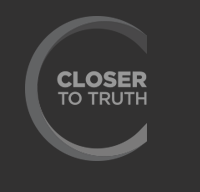
Can philosophy help discern what may be true from what is clearly false? Which principles or methods of philosophy can adjudicate science vs theology?”
In this series of short videos, host Robert Lawrence Kuhn interviews scientists, philosophers and theologians on the role that philosophy, as a form
of critical thinking, can play in enriching the science and religion dialog. These videos, about 10 minutes long, present deep thinkers in a very personal format that allows the non-specialist to grasp the issue discussed in a straight-forward manner. They are great for personal growth and also for small group discussion.
While you are on the site, check out the many other videos. There are dozens of videos ranging from cosmology, biology, to consciousness.
https://www.closertotruth.com/series/can-philosophy-clarify-science-vs-theology#video-57480
